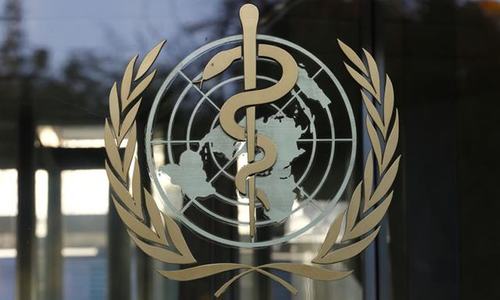KARACHI: While malaria is spreading fast in Sindh, mainly in urban centres, no fumigation campaign has been launched since August last year by the Karachi Metropolitan Corporation and district municipal corporations (DMCs) in the city, putting lives of millions of citizens at risk, it emerged on Thursday.
Residents in every part of the metropolis have been complaining that the city is replete with mosquitoes as the heaps of garbage, oozing gutters and open drains have become nurturing nurseries for larvae drastically multiplying at an alarming rate.
According to Field Epidemiology and Disease Surveillance Division (FEDSD) of the National Institute of Health (NIH), the prevalence of malaria in Sindh was highest where 2,643 out of total 5,124 cases in the country were reported till the second week of the last month.
Sources in the local government institutions told Dawn that the fumigation of major roads, streets and parks was the responsibility of the KMC municipal services department, while the seven DMC in the city were responsible for spraying anti-mosquito chemical in their respective neighbourhoods.
Over 50pc of total 5,124 cases in the country reported from the province
However, they said, all the local government institutions were least bothered about the spread of mosquitoes in the city as fumigation was not at all on their priority despite the fact that dengue and malaria cases were rising in the city.
When contacted, doctors at public and private hospitals said that the mosquito larva breeding had rapidly increased due to poor sanitation conditions in most parts of the city as required measures, including fumigation, had not been taken place yet to control the prevalence of dengue, malaria and other vector-borne diseases.
They said that it was otherwise hard to count the malaria patients as the signs were usually so similar to cold or flu symptoms.
The doctors said that malaria symptoms didn’t always show up within two weeks, especially if it’s a P. vivax infection. They said that along with high fever, shaking chills and sweating, symptoms could include nausea, headache, diarrhoea, body aches and yellow skin (jaundice) from losing red blood cells.
Sources in the city’s municipal administration said that the KMC had been unable to launch the anti-mosquito drive in the city despite procuring 500 litres of chemical for spray as they were still waiting for a non-governmental organisation to join the operation.
They said that the KMC had also time and again approached the local government department through official letters for provision of anti-mosquito and insecticide chemicals, but to no avail as the city municipality did not get any response from the provincial government.
It may be noted here that City Administrator Murtaza Wahab had announced earlier that an anti-malaria campaign would be launched in the city with over 300 KMC workers partaking in the campaign.
The sources said that the fumigation process had not been started as the city’s municipality was short of anti-mosquito chemicals.
They said that the KMC had also planned cleaning and channelling of 41 major drains which ran through a large part of the city for containing the growth of mosquitoes.
The sources said that the KMC staff had partially carried out channelling and cleaning of the drains at PIDC, Korangi, Malir, Landhi, Gujjar Nala, Shafiq Mor and Lyari, using heavy machinery to clear the choking points.
However, they said, the work on the other drains was yet to be carried out.
Published in Dawn, April 29th, 2022













































